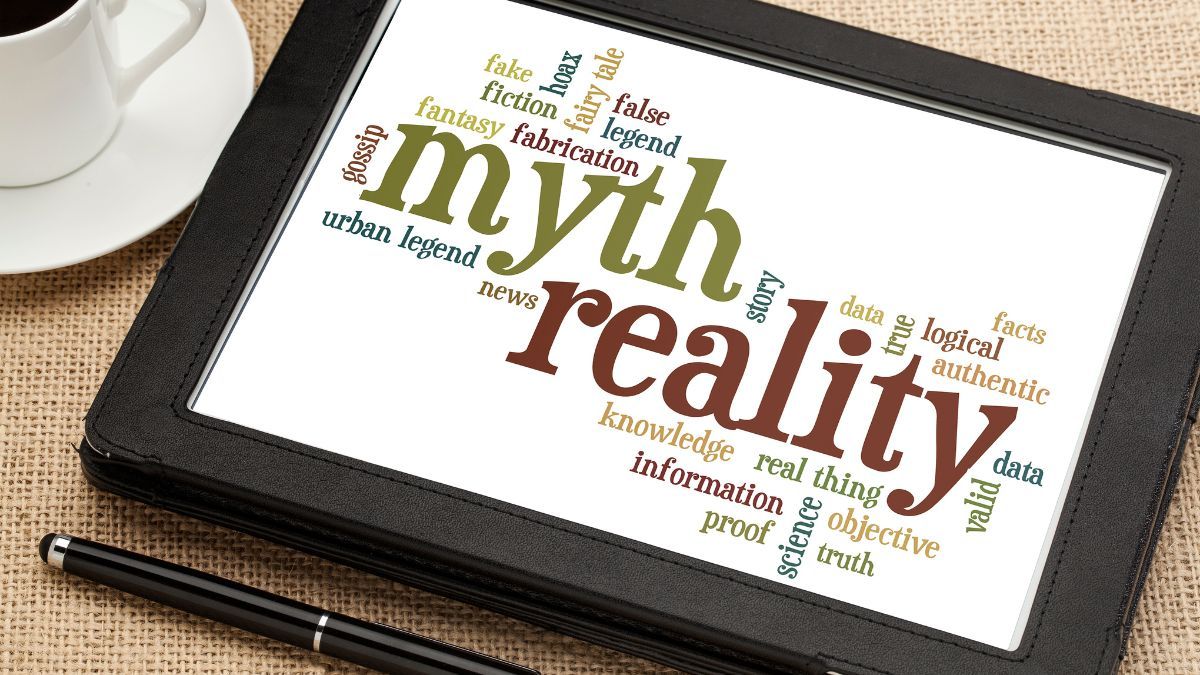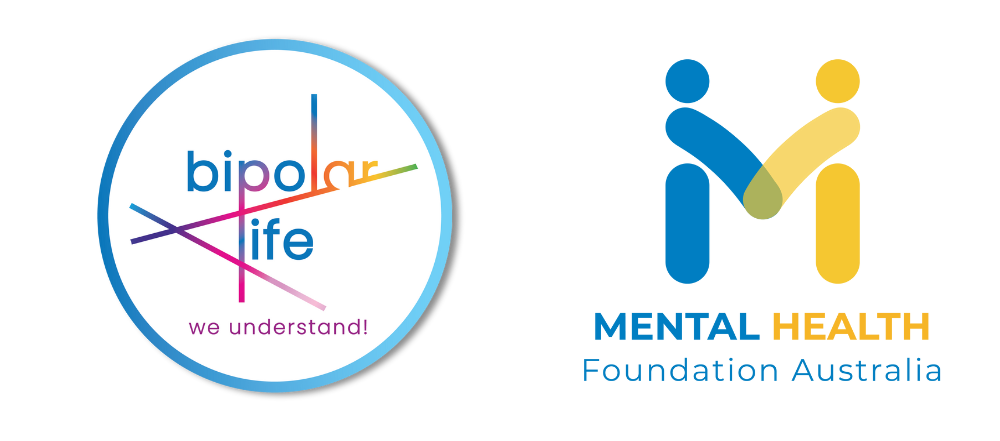9 MYTHS OF BIPOLAR DISORDER.

Many myths surround bipolar disorder — what it is, what it means, and how it’s treated. Here’s to busting a few of the most common ones.
1. BIPOLAR DISORDER MEANS I’M REALLY “CRAZY.”
While bipolar disorder is a serious mental disorder, it is no more serious than most other mental disorders. Having a mental disorder doesn’t mean you’re “crazy,” it just means you have a concern that is negatively impacting how you live your life. Left unaddressed, this concern can cause a person significant distress and problems in their relationships and life.
2. BIPOLAR DISORDER IS A MEDICAL DISEASE, JUST LIKE DIABETES.
While some marketing propaganda might simplify bipolar disorder into a medical disease, bipolar disorder is not — according to our knowledge and science at this time — a medical disease. It is a complex disorder (called a mental disorder or mental illness ) that reflects its basis in psychological, social, and biological roots.
While it has significant neurobiological and genetic components, it is no more of a pure medical disease than ADHD or any other mental disorder. Treatment of bipolar disorder that focuses solely on its “medical” components often results in failure.
3. MANIC DEPRESSION IS DIFFERENT THAN BIPOLAR DISORDER.
Manic depression is simply the old name for bipolar disorder. The name was changed to more accurately describe the type of mood disorder it is — someone who experiences swings between two poles of mood (or emotion). Those two poles are mania and depression.
4. I’LL HAVE TO BE ON MEDICATIONS FOR THE REST OF MY LIFE.
While the default assumption by most mental health professionals is that most people with bipolar disorder will need to be on medications for the rest of your life, nobody can predict how exactly you, as an individual, will react to such medications or what the future holds for your specific needs.
So it is a myth to say that all people with bipolar disorder will absolutely be on medications for the rest of their lives. As many people age with this disorder, they find their swings between mania and depression lessen significantly, and the need for medication may decrease, and may even be discontinued without any harmful repercussions.
5. I’M FEELING BETTER SINCE TAKING MY MEDICATIONS, WHICH MEANS I PROBABLY DON’T NEED THEM ANY MORE, RIGHT?
Wrong. Once a person starts feeling better because of the medication, they often discontinue taking the medication, leading to an eventual relapse. This is a common problem in the treatment of bipolar disorder and is something professionals like to call “treatment compliance.”
This is just a fancy way of saying that a person needs to continue taking their medication as prescribed, no matter how good they may be feeling. It is perhaps one of the most insidious issues in the treatment of bipolar disorder, and leads many people to greater distress than if they just kept taking their medications.
6. THERE’S NO NEED FOR PSYCHOTHERAPY IN BIPOLAR DISORDER.
This varies from person to person (just as the need for taking medications does), but this is a myth insomuch that many people and professionals believe that psychotherapy doesn’t help much in the treatment of bipolar disorder.
Psychotherapy can be very helpful and effective in the treatment of bipolar disorder, since medications alone can’t teach a person new coping skills or how to deal with feelings of an impending manic or depressive episode. Psychotherapy can help a person with bipolar disorder learn to live with the disorder in their lives without as much stress or upset. While many people with bipolar disorder forgo psychotherapy, it is usually a helpful treatment to consider when first diagnosed.
7. ATYPICAL ANTIPSYCHOTICS ARE ONLY FOR SCHIZOPHRENIA.
In the U.S. in 1990, a new class of medications was introduced called “atypical antipsychotics.” These newer medications are not used to treat only psychosis (such as that found in schizophrenia), but also a wider range of psychiatric symptoms.
One of their approved uses is in the treatment of bipolar disorder in adults. They may also be approved in short time for use in teenagers and children 10 years and older (although they are already sometimes prescribed by doctors for “off label use” in teens and children). So don’t let the name of the class of medications fool you — they treat far more than just psychosis.
8. ATYPICAL ANTIPSYCHOTICS HAVE LITTLE TO NO SIDE EFFECTS.
Atypical antipsychotics are often the primary drug doctors use to treat bipolar disorder. In the U.S., the Food and Drug Administration has determined that such drugs are both safe and effective for this use. However, like all medications, atypical antipsychotics have their own set of risks and side effects.
These medications have a different side effect profile than the medications they replace. While initially marketed as a “better” side effect profile, research since 1990 has shown that the side effects they do produce in many people can be just as worrisome as older medications. Chief among the typical side effects are weight gain and metabolism problems, which can be precursors to type 2 diabetes, increased risk of stroke, and heart problems (including an increase in cardiac arrhythmias which can lead to sudden death).
9. I MAY JUST HAVE DEPRESSION.
Bipolar disorder often mimics clinical depression, because one of the primary symptoms of bipolar disorder is clinical depression. Up to 25 percent of people who have bipolar disorder are initially misdiagnosed with depression. Why does this occur? Because many people first go to their primary doctor for a diagnosis, and primary doctors do not always ask enough questions to make the proper diagnosis.
This can occur with mental health professionals who also fail to probe enough when a person presents with clinical depression in their office. An incorrect initial diagnosis can lead to incorrect treatment, such as the prescription of antidepressants. Generally, antidepressants are not used in the treatment of bipolar disorder, and in fact, can make the disorder worse in the person. So if you’ve ever had an episode of increased energy for no particular reason (not because you just drank a litre of Coke), make sure you share that information with your mental health professional.
BIPOLAR DISORDER DOES NOT INCREASE THE RISK OF VIOLENT CRIME.
A study from Sweden’s Karolinska Institutet suggests that bipolar disorder – or manic-depressive disorder – does not increase the risk of committing violent crime. Instead, the over-representation of individuals with bipolar disorder in violent crime statistics is almost entirely attributable to concurrent substance abuse.
The public debate on violent crime usually assumes that violence in the mentally ill is a direct result of the perpetrator’s illness. Previous research has also suggested that patients with bipolar disorder – also known as manic-depressive disorder – are more likely to behave violently. However, it has been unclear if the violence is due to the bipolar disorder per se, or caused by other aspects of the individual’s personality or lifestyle.
The new study, carried out by researchers at Karolinska Institutet and Oxford University, is presented in the scientific journal Archives of General Psychiatry. Researchers compared the rate of violent crime in over 3,700 patients with bipolar disorder cared for in Swedish hospitals between 1973 and 2004 with that of 37,000 control individuals from the general public. 21% of patients with bipolar disorder and a concurrent diagnosis of severe substance abuse (alcohol or illegal drugs) were convicted of violent crimes, compared to 5% of those with bipolar disorder but without substance abuse, and 3% among general public control individuals.
The differences remained when accounting for age, gender, immigrant background, socio-economic status, and whether the most recent presentation of the bipolar disorder was manic or depressed. “Interestingly, this concurs with our group’s previous findings in schizophrenia, another serious psychiatric disorder, which found that individuals with schizophrenia are not more violent than members of the general public, provided there is no substance abuse,” says professor Niklas Långström, head of the Centre for Violence Prevention at Karolinska Institutet, and one of the researchers behind the study.
According to the researchers, the findings support the need for initiatives to prevent, identify and treat substance abuse when fighting violent crime. Additionally, Långström hopes that the results will help challenge overly simplistic explanations of the causes of violent crime. “Unwarranted fear and stigmatisation of mental illness increases the alienation of people with psychiatric disorder and makes them less inclined to seek the care they need”, Långström comments.
by John M. Grohol
Publication:
Bipolar disorder and violent crime: new evidence from population-based longitudinal studies and systematic review. 2010.
